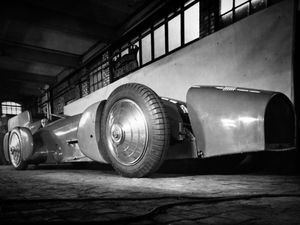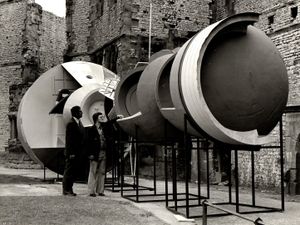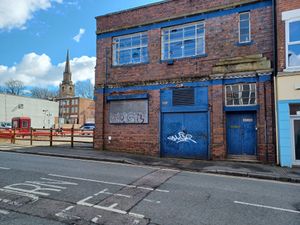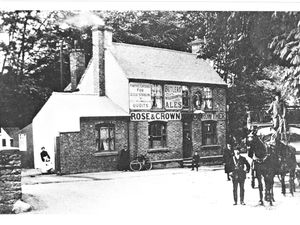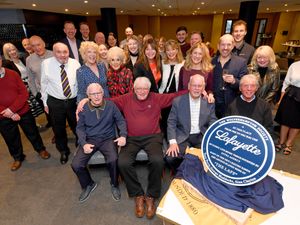Memories shared on Dunkirk as film is released today
It was the greatest retreat in military history - a heroic operation by army servicemen and ordinary fisherman.
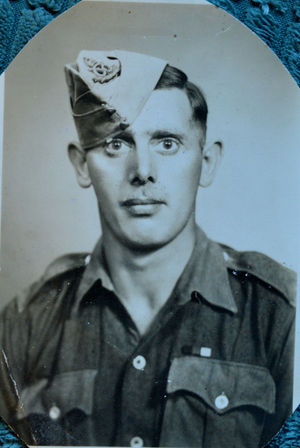
The dramatic story of how nearly 340,000 men were evacuated in 10 days today comes to the silver screen with the release of Dunkirk.
Directed by Christopher Nolan and starring Cillian Murphy and Tom Hardy, the film catalogues the moments that saved the war against the Nazis.
The retreat, the largest ever military evacuation, gave the Allies a chance to regroup and eventually turn the tide of the Second World War.
It gave birth to the Dunkirk spirit. The bravery of the thousands of troops involved has been remembered ever since.
Among the 338,000 British and French soldiers rescued in navy ships and fishing vessels were some notable figures from the Black Country.
They included James Beattie Junior, grandson of James Beattie who founded the famous Wolverhampton department store in 1877.
He was commander of a company of the South Staffordshire Regiment at Dunkirk, before serving in South East Asia when he attained the rank of Lieutenant Colonel.
He became Wolverhampton mayor in 1951, and also served as a magistrate and chairman of the Lord Chancellor's Advisory Committee on Justices of the Peace and on Commissioners of Income Tax.
His son-in-law Michael Redshaw, 73, said his failure to ask more about the Lt Col Beattie's wartime service was one of his life regrets. Lt Col Beattie died aged 73 in 1988.
He said: "I admired him greatly. One thing he said a few times was when he was on the beach he remembered being given the order to throw away all their equipment and heavy weapons.
"There was a great felling of relief, he said. All he then had responsibility for was his men and his back pack.
"It struck me as quite a poignant statement from someone who was used to holding so much responsibility from such a young age."
Also among the same regiment evacuated from the beach was Sergeant Major Harry Allen, born and raised in Wolverhampton.
His son Dave Allen says Sgt Maj Allen was in an artillery unit alongside Lt Col Beattie which was among the last to depart land for Britain.
But the group was attacked by a German Stuka plane.
Mr Allen, 72, who lives in Perton, said: "They were the rear guard, defending the evacuation until a Stuka came down low and attacked them.
"My dad got shrapnel in his leg, I think James Beattie was also injured. But my father helped him on to a vessel.
"But moments later it was bombed and they were all back in the water, where I think they got picked up again.
"It must have been a frightening experience, but everyone showed their bravery to get out of the situation."
Like James Beattie, Sgt Maj Allen also went next to South East Asia, fighting the Japanese in Burma.
After the war he carried out training for the army and in 1956 took part in an anniversary victory parade in Wolverhampton city centre.
But in 1973, aged 59, he died after suffering a stroke and died while living in Church Road in Bradmore.
Mr Allen, who is a music producer, said: "My father didn't like talking about the war, like many of people who were part of the fighting.
"But he used to love all the war films. I think he'd have wanted to see the film Dunkirk, it would have interested him to see what they did with it."
He added: "For me, I think it is important when looking at the film that we don't forget there were many people from this area like my father who were involved.
"We should never forget their bravery, the sacrifices they made."
Sgt Maj Allen left behind his wife Nancy, who later died in her 80s. They had four children, David, Margaret, Dorothy and Richard.
The Dunkirk evacuation, Operation Dynamo, took place over 10 days from May 27 to June 3 in 1940.
It was ordered by Prime Minister Winston Churchill as Hitler's Panzer divisions, following their success in Poland, raced through France.
The British Expeditionary Force attempted to stop the invasion, but along with the French suffered heavy casualties.
All roads led to Dunkirk.
The operation, the largest military evacuation in history, was expected to last 48 hours and rescue only a few thousand troops.
But the Nazis held back, allowing the entire army to get away in navy ships, merchant vessels the 600 'little ships' operated by civilians.
The British welcomed back the troops as heroes.
And four years later, a better trained and equipped, force, which included the South Staffordshire Regiment took part in D Day crossing which kick-started the liberation of Europe.
The film follows on from the 1958 film, also called Dunkirk, which starred John Mills, Richard Attenborough and Bernard Lee.
It premiered on July 13 at Leicester Square in London, and has received good reviews in the national media.

